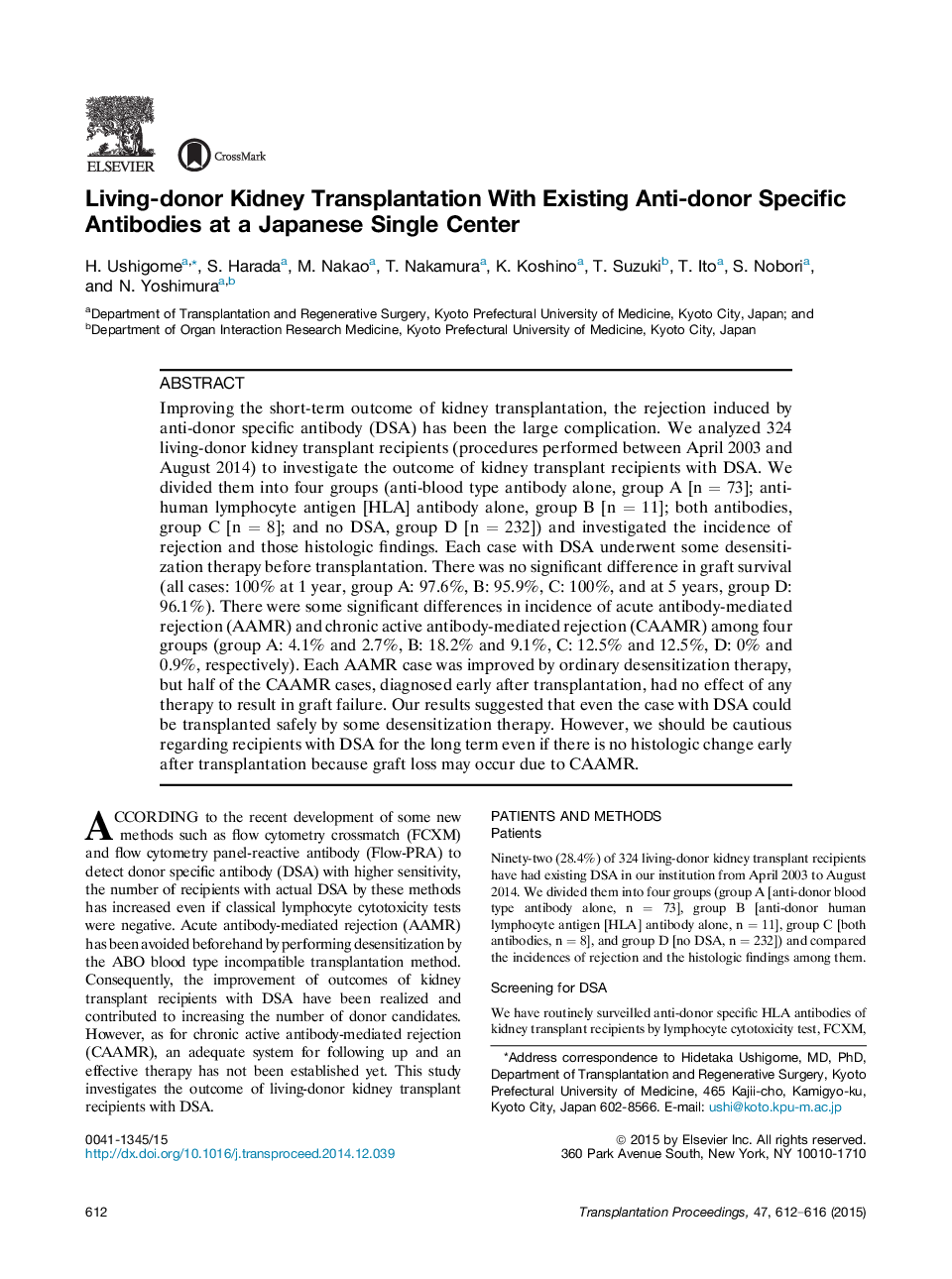| Article ID | Journal | Published Year | Pages | File Type |
|---|---|---|---|---|
| 6247793 | Transplantation Proceedings | 2015 | 5 Pages |
Abstract
Improving the short-term outcome of kidney transplantation, the rejection induced by anti-donor specific antibody (DSA) has been the large complication. We analyzed 324 living-donor kidney transplant recipients (procedures performed between April 2003 and August 2014) to investigate the outcome of kidney transplant recipients with DSA. We divided them into four groups (anti-blood type antibody alone, group A [n = 73]; anti-human lymphocyte antigen [HLA] antibody alone, group B [n = 11]; both antibodies, group C [n = 8]; and no DSA, group D [n = 232]) and investigated the incidence of rejection and those histologic findings. Each case with DSA underwent some desensitization therapy before transplantation. There was no significant difference in graft survival (all cases: 100% at 1 year, group A: 97.6%, B: 95.9%, C: 100%, and at 5 years, group D: 96.1%). There were some significant differences in incidence of acute antibody-mediated rejection (AAMR) and chronic active antibody-mediated rejection (CAAMR) among four groups (group A: 4.1% and 2.7%, B: 18.2% and 9.1%, C: 12.5% and 12.5%, D: 0% and 0.9%, respectively). Each AAMR case was improved by ordinary desensitization therapy, but half of the CAAMR cases, diagnosed early after transplantation, had no effect of any therapy to result in graft failure. Our results suggested that even the case with DSA could be transplanted safely by some desensitization therapy. However, we should be cautious regarding recipients with DSA for the long term even if there is no histologic change early after transplantation because graft loss may occur due to CAAMR.
Related Topics
Health Sciences
Medicine and Dentistry
Surgery
Authors
H. Ushigome, S. Harada, M. Nakao, T. Nakamura, K. Koshino, T. Suzuki, T. Ito, S. Nobori, N. Yoshimura,
